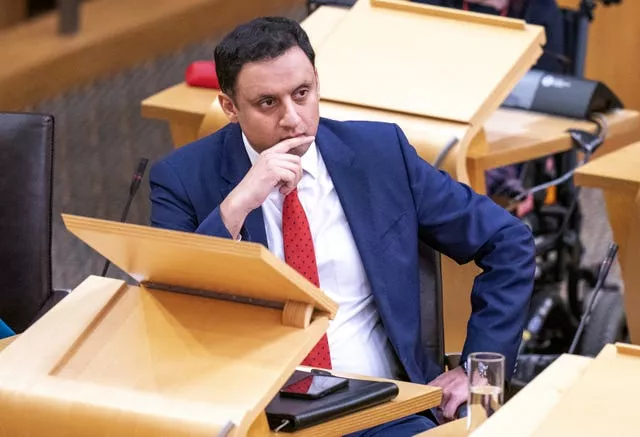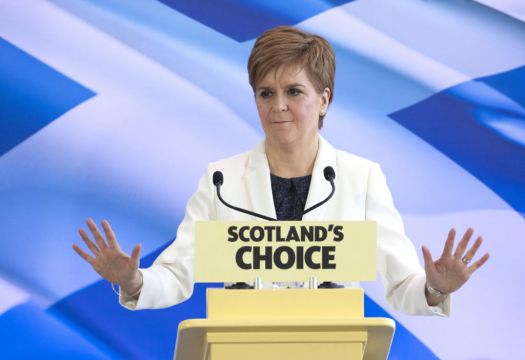A second independence referendum would be “too close to call” if it was held tomorrow as the No camp edged slightly ahead in a poll.
Of the 1,048 Scots interviewed by Savanta on behalf of the Scotsman newspaper, 46 per cent would vote against independence, while 44 per cent would vote in favour and 9 per cent were undecided.
With undecided voters removed, the poll suggests the No vote would take a narrow lead with 51 per cent, compared with 49 per cent for Yes.
🚨NEW #indyref2 voting intention for @TheScotsman
✅ Yes 44% (-1)
❎ No 46% (=)
❓ Undec. 9% (+1)
w/o Undec.
✅ Yes 49% (=)
❎ No 51% (=)
1,048 Scottish adults, 16-21 Dec
(change from 30 Sept - 4 Oct) pic.twitter.com/GqwvxEyUVo— Savanta UK (@Savanta_UK) December 21, 2022
Advertisement
The results are unchanged since Savanta’s previous survey in October.
A string of recent polls put independence support ahead, with 53 per cent backing leaving the union after the removal of undecided voters in a YouGov poll published earlier this month.
But Chris Hopkins, political researcher at Savanta, said the Supreme Court ruling that Holyrood does not have the power to legislate for a second independence vote could have temporarily influenced the results.
First Minister and SNP leader Nicola Sturgeon’s favourability rating fell to its lowest point at plus six – a decline of six points since the last poll in October.
British prime minister Rishi Sunak’s rating was unchanged at minus 24.
The first minister also dropped nine points with respondents in the “genuine” category, from 55 per cent in October to 46 per cent.

Her closest Scottish challenger was Scottish Labour leader Anas Sarwar on 39 per cent.
The poll also asked how respondents would vote in Westminster and Holyrood elections, with the SNP dropping support in both.
Some 43 per cent would back Scotland’s governing party at Westminster – a drop of three from the previous poll, while 44 per cent would choose them at Holyrood.
However, the SNP still boasts a sizable lead over Labour in both parliaments, with the party’s support at 30 per cent in Westminster and 28 per cent at Holyrood, according to the poll.
In Savanta’s first poll since Mr Sunak became British prime minister, Tory support at Westminster saw a four-point boost to 19 per cent.
Mr Hopkins said: “Many pollsters have shown Yes leads recently, but the bulk of them – especially the larger ones – have come off the back of the Supreme Court ruling, a ruling which is likely to have made polling a little noisy and more volatile than usual.
“Now the dust has settled, we’re showing no change from our previous poll at the beginning of October, showing the most marginal of No leads, but really, the race would be too close to call were a referendum tomorrow. This remains a good position for the SNP and the Yes camp to be in.
“Given views across Scotland are so entrenched on the issue of independence, I can only really foresee an actual referendum campaign moving the needle and swinging the pendulum the way of whoever makes the more convincing argument between unionists and those advocating for Scottish independence.
“What remains then is the issue of if – or when – a second referendum could possibly take place.
“There is also a sense, in this poll, of some Nicola Sturgeon fatigue.
“We see the SNP down three points in the Westminster and Holyrood voting intentions, and some negative shifts in her personal favourability and perceptions of her as genuine.
“Given she’s so synonymous with the campaign for independence, any drops in her personal ratings could affect the campaign as a whole, even though she does, undoubtably, remain a huge electoral asset for the time being.”
The survey was conducted between December 16th and 21st.







